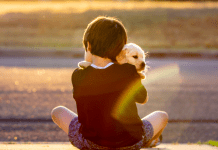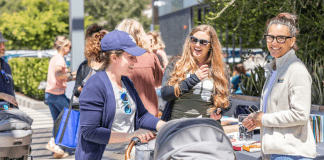Hepatitis A, yeesh.
If you live in San Diego then you should be more than aware of the buzz that this outbreak has been getting lately and how it’s affecting our communities.
Let me first be clear with you what I’m not using this platform to discuss:
Vaccinations. Our mamma tribe walks all paths in life. I’m the last gal to sit here and lecture anyone on the pros and cons. So, rest your mind at ease on that one!
Place guilt on the sick. If you’ve already found yourself unfortunate enough to have to deal with any strain of this virus, you have my deepest love and sympathy.
Stress frenzy. I’m not here to cry wolf, pull a gnarly “click bait” on you, or induce fear.
However, if you’re anything like me, a busy momma, sometimes the bubble of your own surroundings barricades you from the details of current events. To correct that, I’ve been trying to stay on top of this as much as I can and in hopes of spreading knowledge to others who may be like me and just haven’t given themselves the time to investigate further on the topic and what actions I can take to continue keeping my family safe.
What is Hepatitis A? (A Brief Summary)
Hepatitis A is an infectious disease caused by contracting the hepatitis A virus (HAV) that directly correlates to liver disease. While it isn’t fatal like it’s relatives Hepatitis B & C, it can lead to long-term effects on the liver, making it fatal especially for elderly and older children/adults. HAV is transmitted through feces-to-mouth route. This primarily happens when encountering contaminated food and water. You may even contract via person-to-person contact, though not as common. Typical detergents and solvents cannot kill the virus and it can survive in water for several months.
It has an incubation of 14-28 days before appearing in the forms of: diarrhea, jaundice, nausea, fever, vomiting, and abdominal pain. Not all symptoms show up, especially in children under 6, and diagnosis is followed by a blood test. Most infections occur during early childhood in populations that are at a higher risk. (Further info: Wikipedia, and World Health Organization).
What Can Be Done?
As of right now, San Diego County is taking many measures to contain and control the outbreak in affected areas, namely where the homeless population is dense. From installing portable hand-washing stations and passing out hand sanitizers, to cleaning the streets with bleach. While mainly occurring in Downtown San Diego, the outbreak reportedly started as early as last November and has reached additional communities such as El Cajon, La Mesa and Santee. To date, reports of 421 people have been infected, 292 hospitalized and 16 have died from complications. It’s soon predicted to travel to other cities as well. (Resource).
What Does This Mean For Us?
While I’d love to say the solution lies simply in keeping away from these infected areas, it’s not. I myself live next door to these communities which motivates me even more to raise awareness and take active measures that ensure my family is safe and smart about the way we live.
- Continue washing hands and practice good hygiene.
- Always wash your fruits and vegetables.
- Dispose of your waste properly.
- Make sure you’re filtering your water supply correctly.
- Talk to your healthcare provider about your other options.
- Be mindful. If you see something in your area that’s unsanitary, please report it.
- Raise awareness and educate your family.
- Advocate for your neighborhood to have the necessary preventative resources if you see the need rising.
Lastly, continue to be kind to your fellow man. Keeping our spirits high is just as important as our overall health. Life is beautifully challenging and we all do the best that we can to protect our families and loved ones.




















Great article, really.
But, the vaccination qualification irks me because of the word ‘ilk’ which has a negative connotation. Do you mean pro-vax ilk or anti-vax ilk or anyone who dares discuss vaccines in public ilk? Why even use such a powerful emotional world like ‘ilk’? It is a fine line to walk, even with just a mention of vaccination. I think you have bought into the hype of vaccination as a a taboo subject when the truth is we should be discussing the heck out of it, factually and with independent sources.
Hi Elsie!
The word “ilk” is a noun to describe a type or class. My intention in using this was not to highlight any negative connotation for either anti-vax or pro-vax. I agree with you, it is a very important topic to take seriously and I felt that using “ilk” in this way deepened the (quickly noted) topic,no matter what side you’re on.
Understanding that this is not how it’s been received, I’ve taken measures to edit that out so as to not offend anyone further or make anyone feel that I have any sort of negative opinion of them – far from the truth!
We truly appreciate this community and your input is extremely valuable. Thank you!
Thanks so much for sharing this! I would like to point out that already 18 people in San diego have died and over 650 people are already infected. I work in homeless services and we receive almost daily information. We are only in the START of this epidemic! So please make sure you take care of yourselves and your children.
Great info and tips at the end for what we can all do. Good reminder to do something as simple as washing your hands correctly!
Really good information here. Thank you for summarizing it all so clearly!!! It is a mild disease for most, but when living conditions, nutrition, and lack of access to medical care are factors it can become deadly. The good news for us moms is that healthy choices and understanding how it is spread are the best defense! We’ve got this! 😉